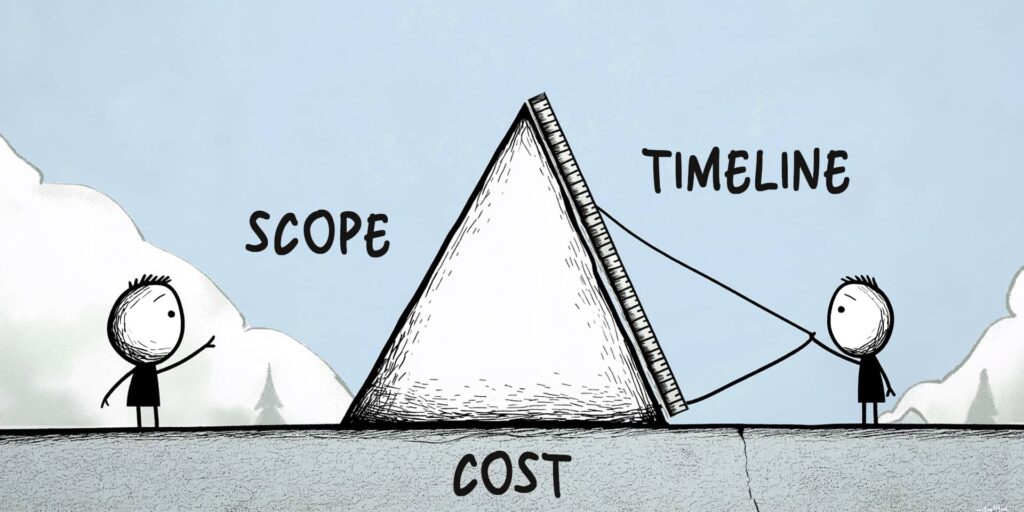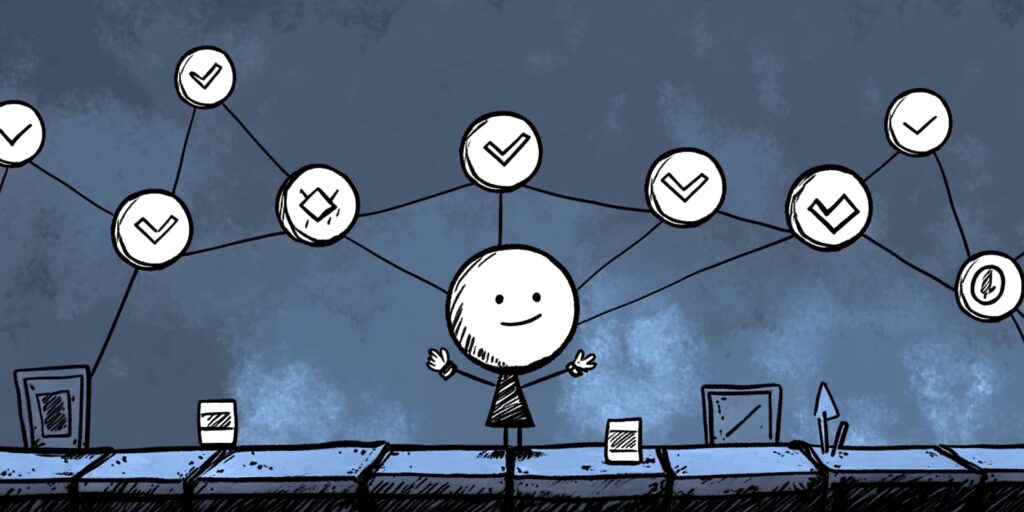Every successful business has a story about the day their critical software faltered. These moments reveal an uncomfortable truth: maintaining modern software platforms has evolved beyond simple upkeep into a complex balancing act of resources, expertise, and foresight. Whether your platform drives direct revenue, connects with customers, or powers core operations, its stability isn’t just a technical requirement—it’s a business imperative that demands a smarter approach.
Yet many organizations find themselves caught in a cycle of reactive maintenance, unexpected costs, and quality compromises. They struggle with development teams that bill by the hour, leading to unpredictable monthly expenses and difficult decisions about which issues to address. Others maintain internal teams but find the cost of dedicated support staff increasingly difficult to justify. In either case, the result is often the same: compromised platform stability and unpredictable costs that impact both operations and budget planning.

At Singlemind, we’ve spent years perfecting a different approach. Through our fixed-fee platform support engagements, we’re transforming how businesses think about software maintenance and support. By providing predictable costs without compromising on quality, we help organizations move from reactive crisis management to proactive platform stability.
Understanding the Iron Triangle: A Foundation for Predictable Support
In software development and maintenance, Dr. Martin Barnes’ groundbreaking project management concept—the Iron Triangle—established the relationship between scope, cost, and timeline. When Dr. Barnes introduced this principle in 1969, he illuminated a fundamental truth that continues to shape project management today: these three constraints are inextricably linked, and adjusting any one directly impacts the others.
At Singlemind, we’ve transformed this principle into a strategic advantage for our fixed-fee engagements by deliberately locking in scope and cost. Our scope remains carefully defined through established standards and processes, ensuring every deliverable meets our exacting quality requirements. Meanwhile, costs stay predictable through fixed monthly fees. This positions timeline as our flexible component—we thoughtfully adjust our scheduling and prioritization to deliver robust solutions within your fixed budget without compromising our rigorous quality standards.
This strategic choice creates remarkable clarity for our clients’ planning and operations. Your business gains both the financial predictability essential for effective resource allocation and the assurance of receiving meticulously crafted solutions that meet your specific requirements. Our team can focus entirely on delivering exceptional work, knowing they won’t face pressure to cut corners or compromise quality to meet budget constraints. By embracing the Iron Triangle’s constraints and strategically choosing which elements to fix, we’ve created a more sustainable, transparent, and effective approach to platform maintenance—one that consistently delivers both peace of mind and technical excellence.

The Reality of Fixed-Fee Platform Support
Our support model reflects a fundamental truth about modern software: stability drives business value. While internal teams often juggle new feature development with maintenance needs, we’ve built our practice around a singular focus—keeping your platform robust, secure, and performant. This specialized approach starts with understanding your platform’s specific requirements and establishing clear channels for ongoing collaboration.
Consider a common scenario: A critical system update needs testing and deployment across multiple platforms. Where an internal team might tackle this in isolation, our broad portfolio allows us to leverage collective insights and proven deployment strategies. When we validate an update’s stability for one client’s platform, that knowledge directly benefits others running similar configurations. This economy of scale means we’re not just maintaining your platform—we’re applying lessons learned across dozens of similar systems, and identifying potential issues before they affect your business.

Our monthly strategic sessions transform typical status updates into forward-looking planning discussions. We analyze platform performance, prioritize stability-enhancing improvements, and align our support efforts with your business objectives. This isn’t about chasing the latest features; it’s about building a foundation of reliability that supports your current operations while accommodating future growth. By focusing exclusively on platform health across multiple similar systems, we deliver a level of expertise and efficiency that traditional internal teams—focused on a single platform—struggle to match.
Platform Monitoring and Response: Balancing Proactive and Reactive Support

Every support engagement requires both responsive issue handling and preventative maintenance. While we’re always ready to respond to immediate platform issues, our monitoring systems also help us identify and address potential problems early.
Our uptime monitoring acts as an early warning system, alerting us when services slow down or become inaccessible. This means we can often begin investigating issues right as they emerge, rather than waiting for users to report problems. For example, when one of our healthcare clients experienced intermittent performance issues, our monitoring system detected the degradation early, allowing us to begin diagnostics immediately. We identified and resolved the underlying database query issues before they significantly impacted their operations.
When we’re not handling immediate support needs, we use our experience to test and proactively address potential issues. This might mean identifying security patches that need testing and deployment, spotting patterns in system behavior that suggest needed optimization, or recognizing opportunities to improve platform stability. Because we operate on a fixed-fee model, this balance of reactive and proactive work doesn’t affect your monthly costs—it’s all part of our commitment to maintaining platform health.
Structured Communication and Support Tiers
We believe in complete transparency about the value we provide. Each month, we deliver comprehensive reports detailing not just what we’ve done, but why it matters to your business. We document completed maintenance tasks and their impact on stability, security updates and their importance to platform protection, performance improvements and their effect on user experience, and our plans for addressing upcoming maintenance needs.

Platform complexity varies dramatically—from streamlined applications requiring basic maintenance to sophisticated systems demanding constant attention. Our approach acknowledges this reality by aligning support intensity with your platform’s specific needs. Through collaborative assessment of your system’s architecture, business impact, and operational demands, we work with your team to select the appropriate level of support. This thoughtful matching ensures your platform receives precisely the attention it requires—no more, no less. Regardless of tier, our fixed-fee model delivers the same core promise: predictable costs, consistent quality, and transparent service delivery that keeps your platform stable and your business moving forward.
Building Long-Term Platform Stability
The true value of fixed-fee engagements becomes evident over time. As we develop a deeper understanding of your platform and business needs, we become increasingly proactive in our support approach. We might suggest architectural improvements to prevent future issues, identify opportunities for performance optimization, or recommend strategic updates to keep your platform current with evolving technology standards.
This long-term perspective is possible because our fixed-fee model removes the traditional conflicts between cost and quality. We’re not incentivized to wait for problems to occur or to stretch out maintenance tasks. Instead, we’re motivated to find and implement the most efficient, effective solutions possible—because every improvement we make benefits both our clients and our ability to provide consistent, high-quality support.
Our clients have experienced firsthand how this approach transforms their platform maintenance. Here’s what a few of them had to say about working with us.
Looking Ahead: Maintaining Platform Excellence

While predictable costs provide peace of mind, successful platform support requires a comprehensive approach that balances immediate needs with long-term stability. In our next article, “Best Practices in Application Maintenance: Our Proactive Approach to Your Success,” we’ll explore how we combine responsive support with strategic maintenance to keep your platforms running smoothly.
You’ll learn how our balanced approach helps identify both immediate issues and opportunities for platform improvement. We’ll share real examples of how this strategy has helped businesses maintain stable, secure, and high-performing platforms while avoiding the unpredictable costs and quality compromises often associated with software maintenance.

